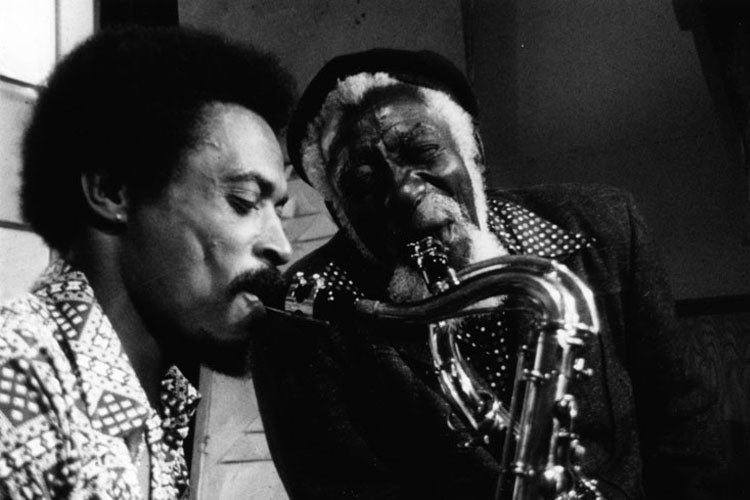You are here
Passing Through

Eddie Warmack, an African American jazz musician, is released from prison for the killing of a white gangster. Not willing to play for the mobsters who control the music industry, including clubs and recording studios, Warmack searches for his mentor and grandfather, the legendary jazz musician Poppa Harris. Director Larry Clark theorizes that jazz is one of the purest expressions of African American culture, embodying the struggles of generations of Blacks going back to slavery times, but now hijacked by a white culture that brutally exploits jazz musicians for profit. The opening seven-minute credit sequence is accordingly an homage to jazz and jazz musicians, privileging the raw energy of the music, while the concert footage appears virtually abstractly as a riot of blues, reds and whites. The film repeatedly returns to scenes of various musicians improvising jazz, as well as flashback scenes (in black-and-white) in which Poppa teaches Warmack to play saxophone, leading a French critic to call Passing Through “the only jazz film in the history of cinema.”
It is the Africanism of Poppa, as the spiritual center of Passing Through, that ties together Black American jazz and the liberation movements of Africa and North America. In the early flashback sequences in sepia, Clarence Muse appears in African dress and teaches saxophone under the sky. Poppa teaches Warmack that the music comes from the soil, from the earth, leading Womack to bury his saxophone to improve his playing. The film’s final montage incorporates shots of African leaders with a close-up of Poppa’s eye and close-ups of Black hands holding the soil, thus semantically connecting jazz, Africa and the earth in one mystical union, and by extension justifying the liberation of the earth through violent struggle, whether in Africa or Los Angeles.
Clark completed the film while participating in the fellows program at the American Film Institute. The film’s world premiere took place at “Filmex,” the Los Angeles Film Festival in 1977, subsequently won a special jury prize at the Locarno Film Festival (Switzerland) and played film festivals in Edinburgh (1978), Perth (1978) and Moscow (1979).
—Jan-Christopher Horak
Film Credits
| Individual | Role(s) |
|---|---|
| Larry Clark |
Director Producer Writer Editor |
| Ted Lange | Writer |
| Roderick Young | Cinematographer |
| George Geddis | Cinematographer |
| Nathaniel Taylor | Cast |
| Clarence Muse | Cast |
| Pamela Jones | Cast |
| Johnny Weathers | Cast |
| Della Thomas | Cast |
To report problems, broken links, or comment on the website, please contact support
Copyright © 2025 UCLA Film & Television Archive. All Rights Reserved






 Mobile Navigation
Mobile Navigation

